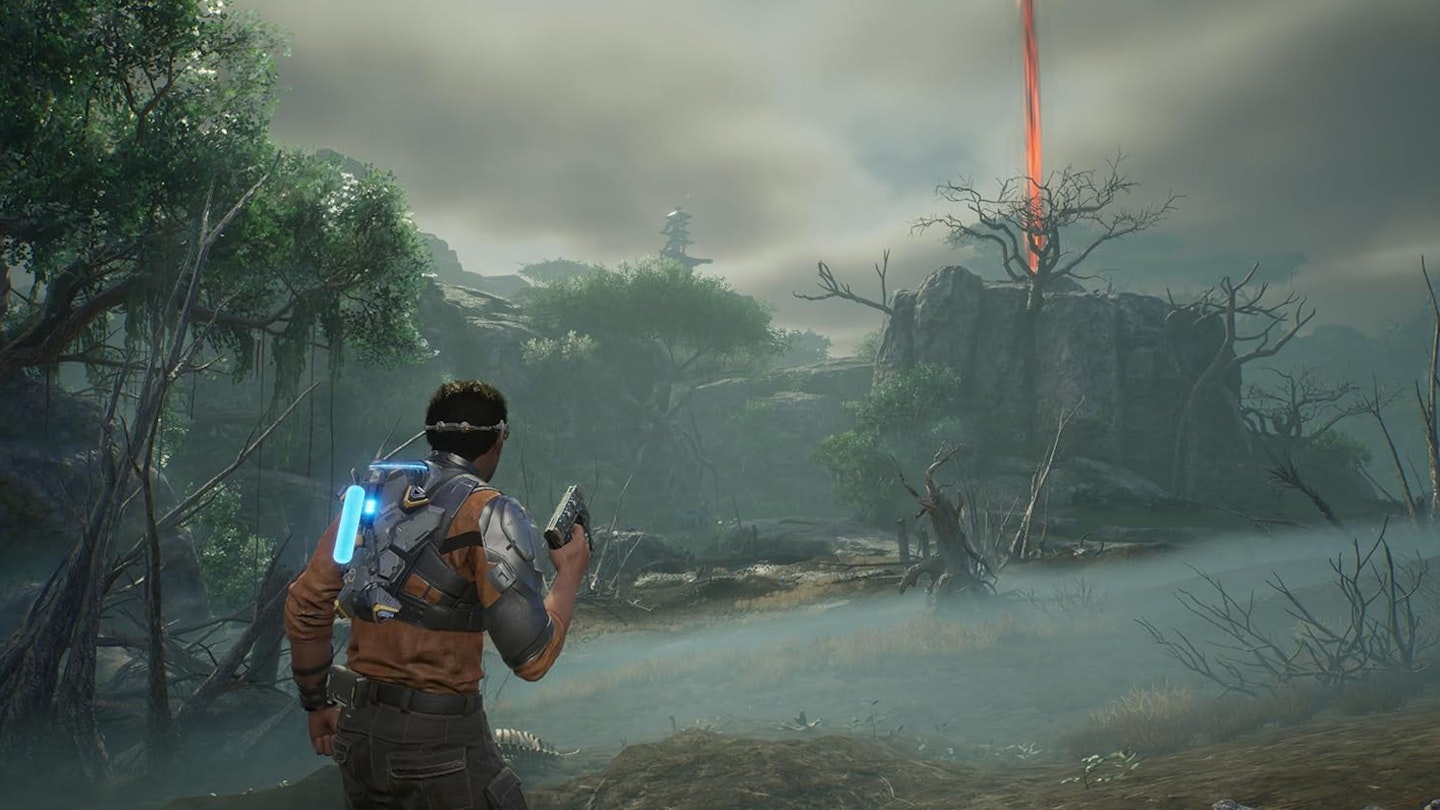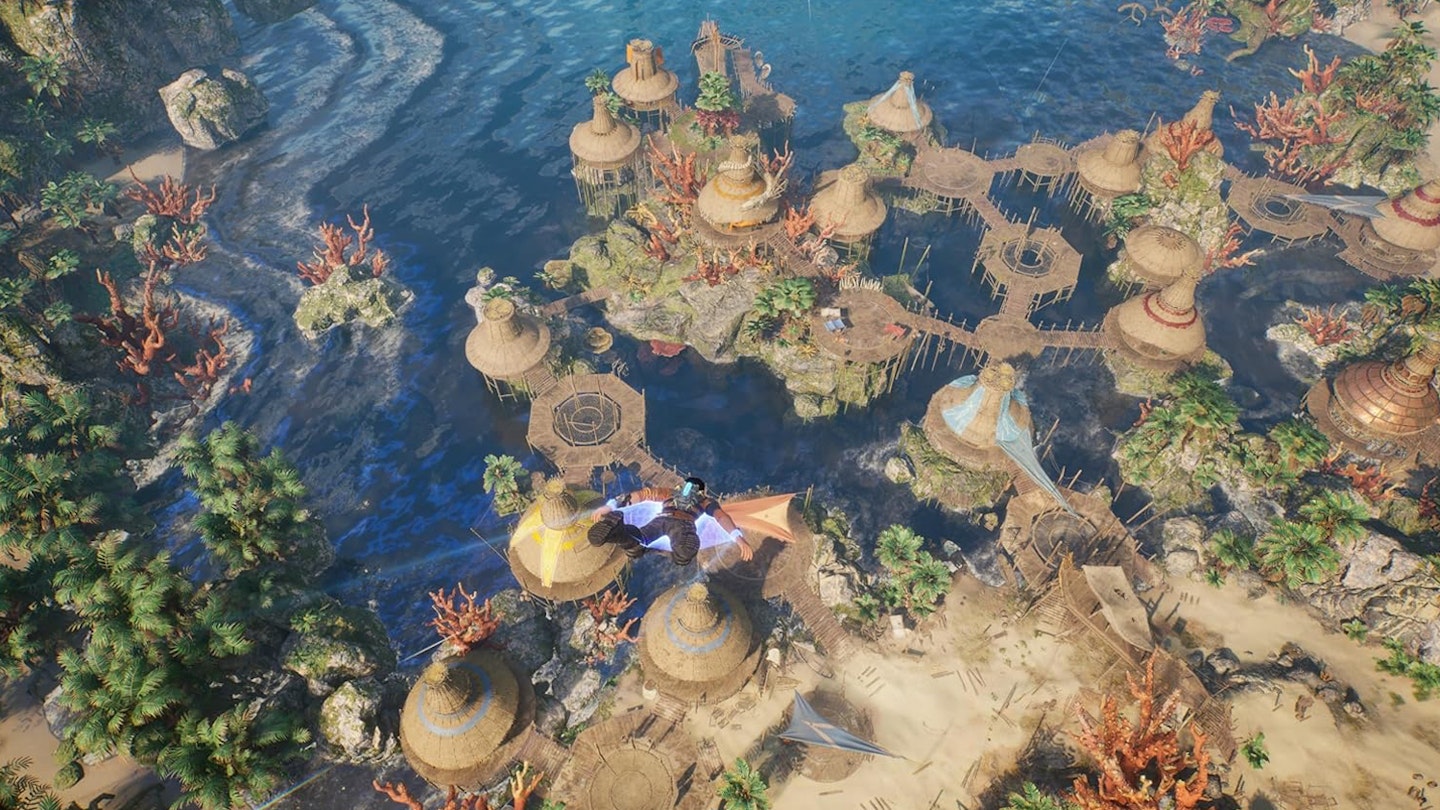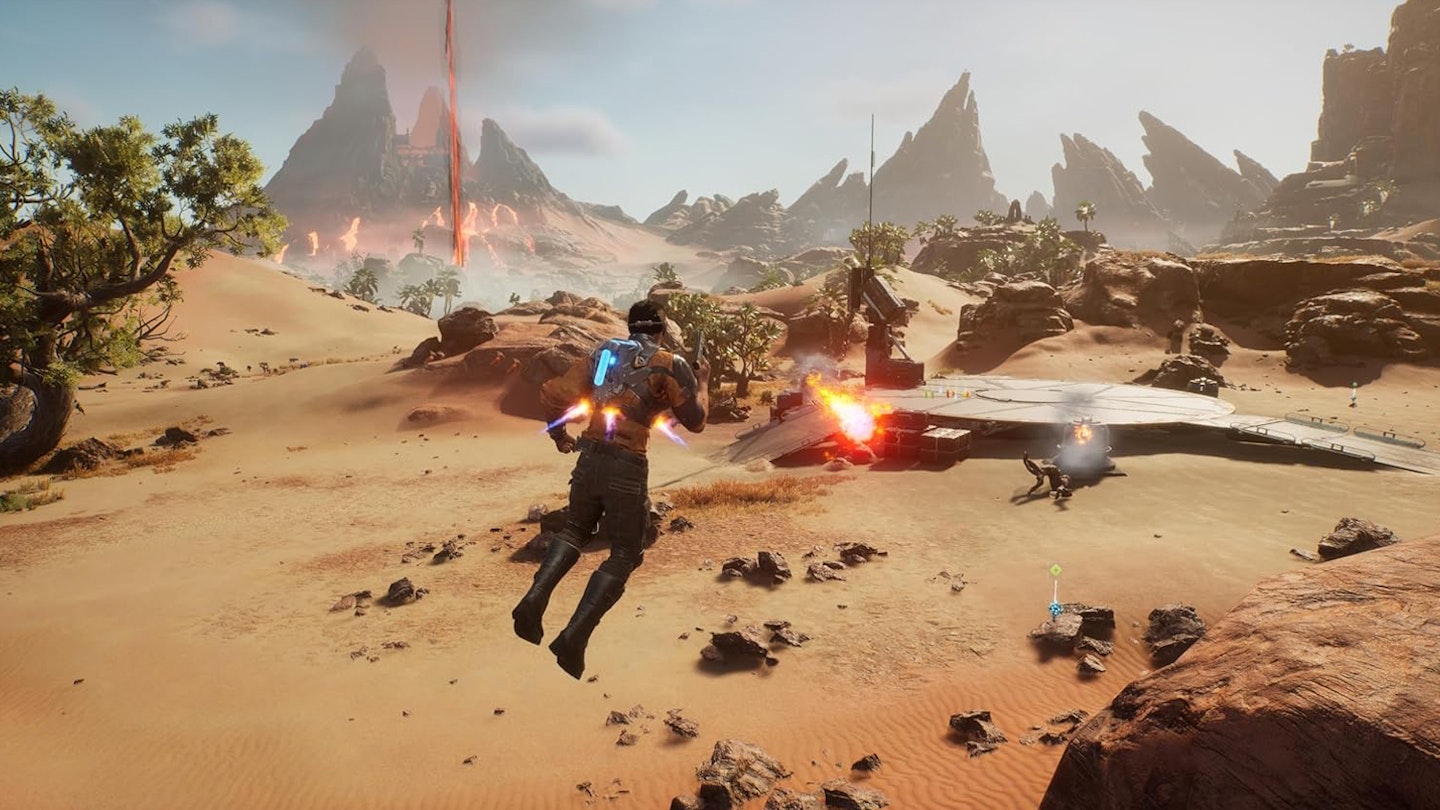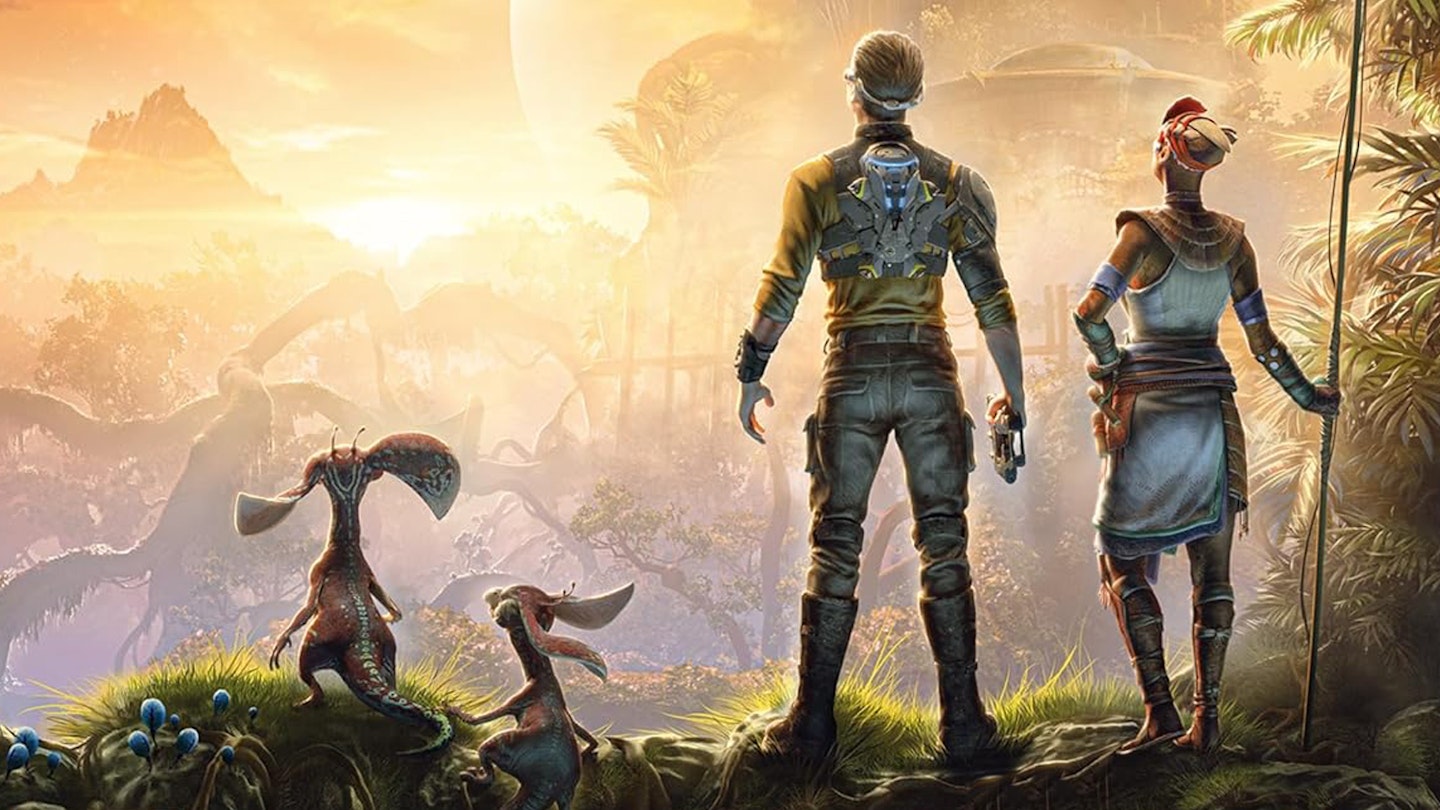Platforms: PS5, Xbox Series X|S, PC
Cutter Slade is back for another adventure exploring the wilds of Adelpha. Wait, Cutter who? Adelpha where? Yeah, this might take a while…
Back in 1999, the original Outcast became something of a cult hit. Spec Ops agent Slade found himself cast through an interdimensional portal to the alien world of Adelpha, where he learned he was a prophesised saviour, the Ulukai, to the native Talans. Released only for PC, it was an early example of open world gaming, ahead of the likes of Grand Theft Auto III, and boasted the freedom to pursue quests and objectives in any order. Then, in the wake of developer bankruptcy and rights being snarled up with publishers, nothing – until a 2014 rerelease and 2017's remake Outcast: Second Contact. Seven years on from even that though, it's definitely a series in need of reintroduction for modern players.

Unfortunately, A New Beginning proves to be anything but. From the off, it seems to demand familiarity with its now-obscure precursor, picking up as a direct sequel and throwing players into the mix of interplanetary liberation with little-to-no explanation of what's happening or why. Before you know it, you're scouring the planet to both repel invaders (spoiler: that'd be us pesky humans, which in 2024 feels like a none-too-subtle riff on Avatar) and help the Talans hold an orgy (no, really) to replenish their numbers. Hopping between blowing up resource-draining bases to providing catering for an alien sex party is perhaps the strangest tonal whiplash in gaming history.
A horribly disjointed experience.
Its general lack of focus feels baked-in, though. Starting in media res can be a great narrative technique, but only when the storytellers know where they're going. Here, we flip from Slade being an amnesiac unsure of where or who he is, to talking of completing trials for the Talans' deities within minutes. The game is positively riddled with jarring narrative clashes, with story beats being discussed as if already known, before being introduced or explained, making for a horribly disjointed experience.
It's a problem that extends into the wider structure of the game. It retains the original's freeform approach to following missions, but there's little in the way of coherence for quest chains. Slade will frequently speak to villagers and get dialogue about tasks not yet started – one character talked about giving music lessons to Talan children before that objective had been picked up, for instance. Elsewhere, another Talan complains about a legendary creature's impact on their village, and in the next breath talks about how good it's been for the community. After a while, you're likely to give up on paying attention to what characters are saying, and simply hop in and out of menu screens to follow objectives – and when a significant amount of those objectives are repetitive fetch quests and escort missions, even that soon feels like mechanistic errand runs.

It's not all bad, though. Traversal is Outcast's strongest feature, with Slade strapped into a hi-tech jet pack. Initially, it'll just give a slight jump boost to manage Adelpha's more rugged terrain, but by the time you've upgraded it, you'll be able to zoom across the landscape, launch yourself clear up mountains, and accelerate when swimming underwater – all skills needed to conquer tricky parkour challenges scattered around the world. The use of verticality is tremendous throughout, too, and while there feels to be something of a Breath Of The Wild influence at work, Slade doesn't have Link's stamina gauge to limit how far he can glide – get up high enough, and you can soar for miles. It's a gorgeous world to explore (barring some odd texture pop-in at times), the environment shifting subtly as you explore further afield, and each Talan village has its own unique feel.
While there are some underwhelming melee abilities, combat predominantly relies on ranged attacks using a pistol or rifle. Although Outcast's gunplay won't rival any of the dedicated shooters on the market, a host of upgrade modules allowing each weapon to be customised with various effects – homing attacks, bullets that restore health when an enemy is killed, damage boosters, and more – provide some genuinely fun options.

The downside is that they may be a little too fun. By the time you've acquired later abilities to summon some of Adelpha's wildlife for support – all of which require completing lengthy quest chains across the various Talan villages – your primary weapons are likely to be so souped-up that you ignore everything else. Why bother calling in the sandworm-like Garondar, which disrupts gravity and throws enemies into the air, when you can just unleash a barrage of explosive tracker ammo? Why sic a swarm of insects on foes when you can let loose with a wide spray of energy bullets? And why try to get creative at all when the majority of Outcast's combat encounters centre on taking out overly-similar facilities staffed entirely by meagre robots?
Unfortunately, even the bright spots of exploration and satisfying-if-simple combat suffer from the game's overall lack of polish. It's glitchy, with subtitled lines of dialogue often unaccompanied by spoken audio, and a tendency for completed quest notifications to pop up multiple times. Worst of all, there's a game-breaking bug (encountered repeatedly on PS5, version tested) that completely freezes the game if you go into the map screen while flying the Galenta, an aerial mount.
Yet beyond its problems, there's a certain B-movie vibe to it all. It often proves somehow enjoyable despite its janky nature, and it's all wrapped up in a truly wonderful score by returning composer Lennie Moore that's probably better than the game in its present form deserves. With a hefty amount of patching, Outcast: A New Beginning might yet attain the cult status of its predecessor, but as it stands, this is a mess.
